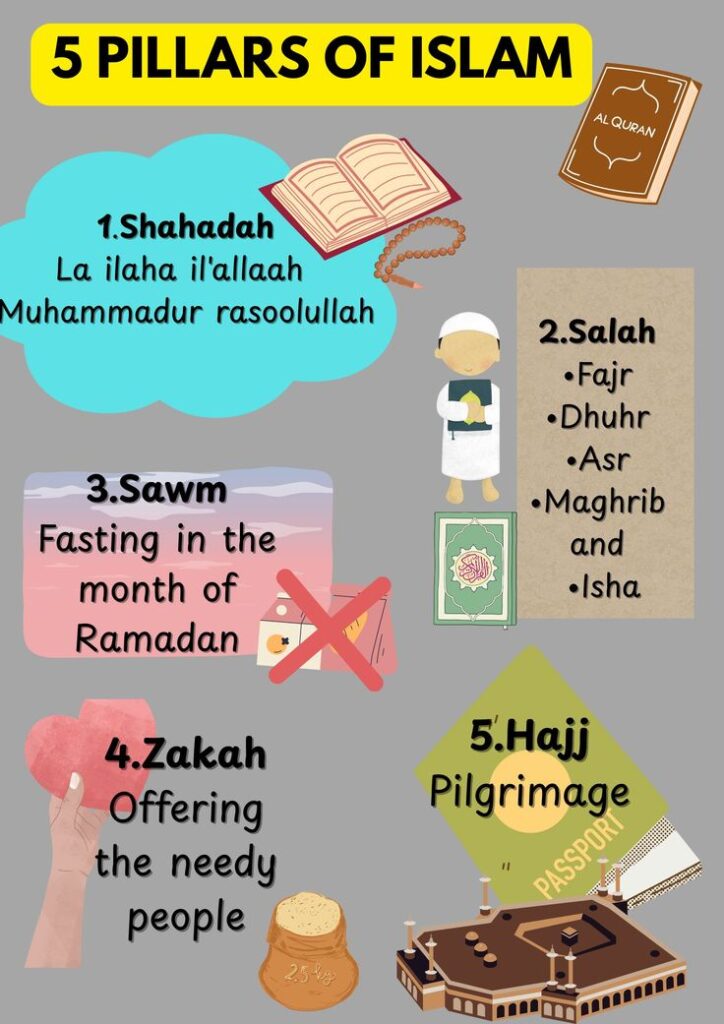
What is Namaz
What is Namaz? Types of Prayers in Islam is a topic of deep spiritual and religious significance for Muslims across the world. Namaz, also known as Salah, is the fundamental pillar of Islam that connects a believer directly with Allah. It is not just a ritual but a way of life that purifies the soul, disciplines the mind, and strengthens faith. Every Muslim is required to perform Namaz five times a day as a form of worship, gratitude, and remembrance of the Creator.
In this article, we will explore in detail what is Namaz, the meaning behind it, and the different types of prayers in Islam that every believer should know about.
What is Namaz in Islam?
To understand what is Namaz, we must know its importance in Islamic teachings. Namaz is the daily prayer offered by Muslims at specific times of the day. It is one of the Five Pillars of Islam and holds a central place in religious life. The word “Namaz” is commonly used in South Asia, while in Arabic it is called Salah.
Namaz includes physical postures such as standing, bowing (Ruku), prostrating (Sajda), and sitting (Qa’da) combined with recitation from the Holy Quran. Through Namaz, a Muslim submits completely to Allah and seeks guidance, mercy, and forgiveness.
Importance of Namaz in Islam
Before learning about the types of prayers in Islam, it is essential to understand why Namaz is so important. The Quran and Hadith emphasize that Namaz distinguishes a believer from a non-believer. It is described as the key to Jannah (Paradise) and a shield against sinful acts.
Performing Namaz regularly develops discipline, gratitude, and humility. It reminds Muslims that all worldly matters are temporary, and true success lies in obeying Allah’s commands. Hence, knowing what is Namaz? Types of Prayers in Islam becomes essential for every Muslim.
Types of Prayers in Islam

When we talk about what is Namaz? Types of Prayers in Islam, it refers to the different categories of Salah that Muslims perform daily and on special occasions. These can be divided as follows:
1. Fard (Obligatory Prayers)
The most important type of Namaz is Fard. These prayers are compulsory and cannot be skipped except in extreme circumstances. There are five daily Fard prayers:
- Fajr (before sunrise – 2 Rakats)
- Dhuhr (afternoon – 4 Rakats)
- Asr (late afternoon – 4 Rakats)
- Maghrib (after sunset – 3 Rakats)
- Isha (night – 4 Rakats)
These five daily prayers form the foundation of Islam. Missing them without a valid reason is considered a major sin.
2. Wajib (Necessary Prayers)
The next category in types of prayers in Islam is Wajib. These are prayers that are almost obligatory, and neglecting them is sinful. Examples include the Witr prayer after Isha and the Eid prayers.
3. Sunnah (Prophet’s Practice)
To further understand what is Namaz, we must look at Sunnah prayers. These are the prayers that Prophet Muhammad (PBUH) regularly performed. They are divided into:
- Sunnah Mu’akkadah (Emphasized) – strongly recommended, like the two Rakats before Fajr.
- Sunnah Ghair Mu’akkadah (Non-Emphasized) – optional, but bring great rewards if performed.
4. Nafl (Voluntary Prayers)
Nafl prayers are voluntary and show extra devotion. They are not mandatory, but they bring immense blessings. Some Nafl prayers include Tahajjud (night prayer), Ishraq (after sunrise), and Duha (forenoon prayer).
5. Special Prayers
Among the types of prayers in Islam, there are also special ones for specific occasions, such as:
- Salat al-Janazah (Funeral prayer)
- Salat al-Tarawih (during Ramadan nights)
- Salat al-Istikhara (seeking Allah’s guidance)
- Salat al-Tasbih (for forgiveness and blessings)
These prayers strengthen the spiritual bond between a Muslim and Allah during different life situations.
Difference Between Namaz and Other Forms of Worship
When someone asks what is Namaz? Types of Prayers in Islam, it’s important to note that Namaz is unique compared to other Islamic acts of worship. While fasting, charity, and Hajj are also important, Namaz is the only act that is directly commanded to be performed multiple times every single day. It is the first deed Muslims will be questioned about on the Day of Judgment.
Conclusion
Now that we have understood what is Namaz? Types of Prayers in Islam, it is clear that Namaz is not only a duty but also a source of peace and guidance for every believer. From the five daily Fard prayers to Sunnah, Nafl, and special prayers, each form of Namaz carries immense spiritual value.
By performing Namaz regularly and sincerely, Muslims strengthen their relationship with Allah, seek His mercy, and live a life of discipline and righteousness. Truly, Namaz is the key to success in this world and the hereafter.







